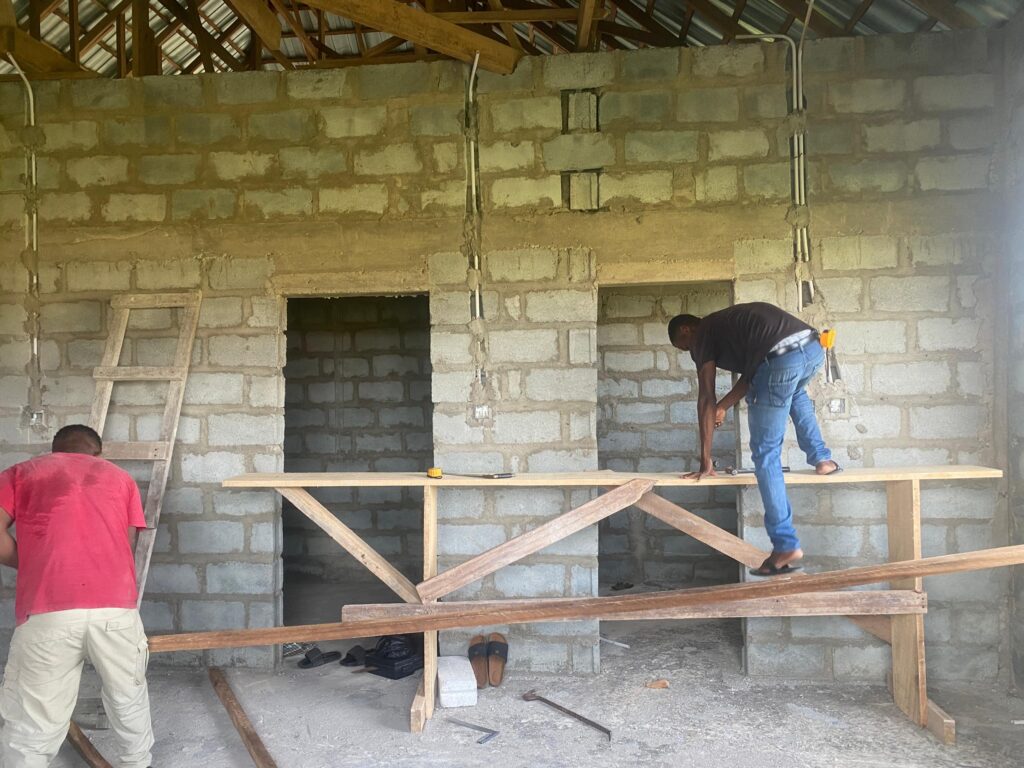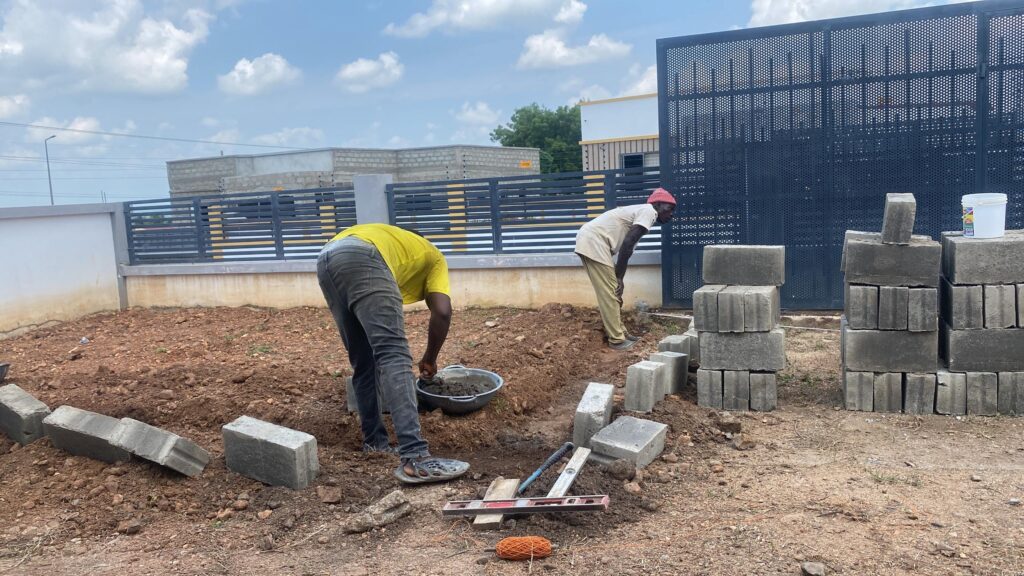When embarking on a construction project in Ghana, one of the most crucial decisions you will face is how to pay your workers. This choice can significantly impact your project’s budget, timeline, and overall project quality. There are two primary options: daily labour and contract-based agreements. Each method has its advantages and drawbacks, and the best choice for you will depend on your specific needs and priorities.

Paying Building Artisans by Day: Flexibility with Some Risks
Paying artisans by the day is a common practice for many smaller projects or when working with a flexible budget. This method offers several advantages:
- Flexibility in Scheduling: Paying workers daily gives you more control over your budget. You can choose to hire artisans when you have the funds to pay them, which is particularly helpful when cash flow is tight. It allows you to adjust based on the progress of the work or pause when necessary, without a long-term financial commitment.
- Direct Supervision: Since you’re paying by the day, there is often more direct supervision of the work. This allows for real-time adjustments and quality checks, ensuring that the work is up to standard. You’ll have more control over the pace of the project, and it’s easier to spot and address any issues immediately.
- Payment Transparency: Daily payments mean that you only pay for the hours worked and the tasks completed, making it easy to keep track of costs. It also offers transparency because the work is accounted for in real time, so you know exactly what you are paying for.
- Potential for Delays: The downside to daily labour is that it can sometimes lead to inefficiencies. If there are delays in work or interruptions in the schedule, the project could take longer to complete, resulting in higher costs in the long run. Some artisans may intentionally slow down to extend the days, especially if there’s no strict timeline in place.
- Inconsistent Workforce: Another challenge is that you might not always have the same artisans working on your project. This inconsistency can affect the quality of the work, as every artisan may have a different approach or skill level, leading to uneven finishes or miscommunication in tasks.

Paying Building Artisans on a Contract Basis: Predictable but Requires Trust
For larger or more complex projects, many opt to pay artisans on a contract basis. This model comes with its own set of advantages:
- Fixed Costs: One of the key benefits of paying on a contract basis is the ability to budget better. With a fixed cost agreed upon at the start of the project, you have more predictability in your expenses. This can be especially helpful for projects that require careful financial planning.
- Clear Expectations: Contracts typically lay out specific deliverables, deadlines, and quality standards. Both parties are clear on what needs to be done, by when, and to what standard. This clarity can prevent misunderstandings down the road and ensures everyone is on the same page from day one.
- Incentive for Efficiency: Contractors and builders often have a strong incentive to finish the work efficiently within the agreed timeframe and budget. Since they have already agreed on the payment, there’s no benefit to dragging the project out, unlike in the daily payment model where delays might lead to more pay.
- Reduced Supervision: When you hire artisans on a contract, there’s usually less need for direct supervision. The contractor is responsible for managing the team and ensuring the project is completed according to the terms of the contract. This frees you up to focus on other aspects of your build or business.
- Potential for Higher Costs: However, this approach often results in higher overall costs. Contractors will likely include a markup in their pricing to cover their services, risks, and any unforeseen expenses. While this may seem more expensive upfront, the benefit is the peace of mind that the project will be completed as promised.
- Risk of Non-Performance: The biggest risk with contract-based work is the possibility that the contractor won’t deliver on their promises. If they fail to meet the terms of the agreement, it can be difficult and expensive to resolve disputes. Legal recourse is an option, but it’s often a lengthy and stressful process.

Which Option is Best for You?
The choice between paying artisans by the day or on a contract basis comes down to your priorities. If you’re looking for flexibility and want to closely monitor the quality of work, daily labour may be your best bet. However, if you prefer a more hands-off approach and want to ensure that your project stays within budget and timeline, a contract-based agreement offers more predictability and structure.
For most people building in Ghana, a mixed approach might be ideal—using daily labour for smaller, less critical tasks while hiring contractors for major, time-sensitive portions of the project. Whatever you choose, make sure to consider the nature of your project, your financial capabilities, and how much control you want to have over the building process.
By understanding the pros and cons of both payment models, you can make an informed decision that helps you get the best value for your money while ensuring your building project in Ghana is a success.


Comments